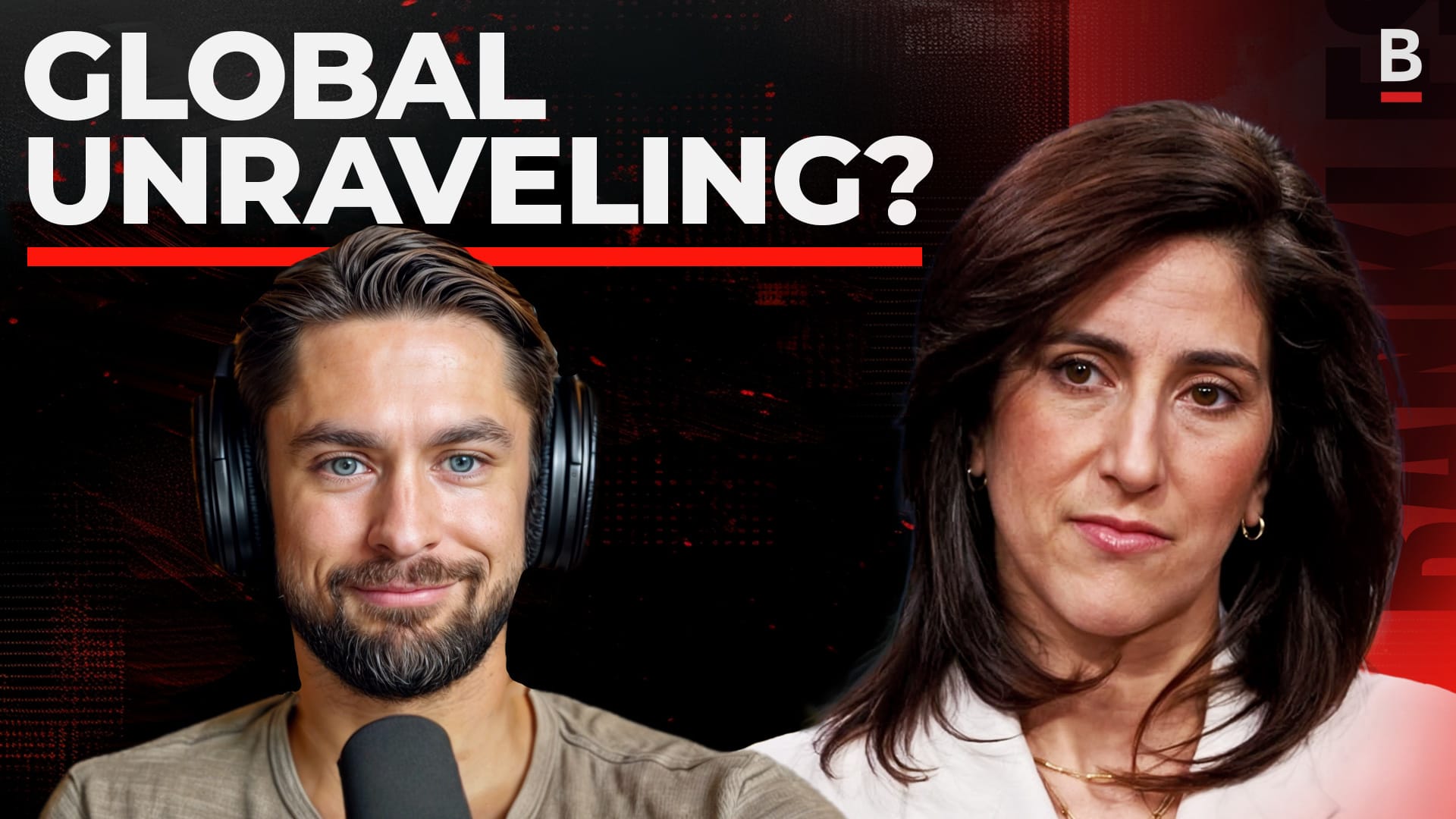Unraveling of the Global Order? | Rana Foroohar

What happens when the world’s largest economy decides to upend the very system it built?
That’s the question we explored with Rana Foroohar, Financial Times columnist and CNN economic analyst, in one of our most timely and consequential episodes yet.
We’re witnessing something that’s rarely happened in modern history: an intentional attempt to unwind the global economic order. And the person leading that charge is, of course, Donald Trump.
Liberation Day: The Day the Music Stopped
On April 10th—what some are now calling “Liberation Day”—markets got spooked. Stocks fell. Bond yields spiked. The dollar slumped. And it wasn’t just noise. It was signal.
The catalyst? Trump’s dramatic escalation of tariffs, not just against adversaries like China, but also against U.S. allies. The move marked a clear departure from the post-Bretton Woods consensus that globalization—however messy—was a net good. Suddenly, the system built on outsourcing production and importing goods in exchange for exporting dollars was being thrown into question.
And that question is bigger than Trump.
The Triffin Dilemma, In Real Time
For decades, the U.S. has had what economists call the “exorbitant privilege”—issuing the world’s reserve currency while running structural trade deficits. It worked for capital markets. It worked for asset owners. But it didn't work for large swaths of working-class America. And Trump’s political mandate—especially among Rust Belt states hollowed out by offshoring—seems to be to undo that trade-off.
As Rana explained, this moment isn’t just about tariffs or Trump. It’s about a pendulum swing. After 40 years of neoliberal economic orthodoxy—focused on efficiency, outsourcing, and financialization—we're entering a new era of economic nationalism, regionalism, and resilience.
Manufacturing, But Make It High-Tech
Is reshoring even viable? Can Americans—many of whom now work in services or creative fields—actually return to manufacturing?
Yes… but not the way it used to be.
Today’s factories are powered by additive manufacturing, AI-optimized supply chains, and real-time data flowing from sensors in jet engines to machine-learning models at factories. As Rana puts it: "This is not your grandfather’s manufacturing economy."
This reshoring push isn’t just about jobs. It’s about resilience. The pandemic and geopolitical tensions made clear: fragile global supply chains can break quickly. In a fragmented, multipolar world, redundancy isn’t waste—it’s survival.
America the Emerging Market?
One of the most provocative parts of Rana’s FT column—and this interview—is her comparison of the U.S. under Trump to an emerging market.
Think about it:
- Sudden, unpredictable policy shifts
- Markets whipsawed by a single leader’s statements
- Trade reps contradicting the President in real time
- Declining trust in institutions
These are traits more often associated with Turkey or Brazil than the U.S. But here we are. And the bond market is noticing. Investors are no longer treating U.S. treasuries as a “risk-free” asset in the same way. Gold is up. Risk is re-pricing.
And all this raises the uncomfortable question: Has the world begun to hedge against American instability?
Crypto's Place in All This
While this episode wasn’t crypto-centric, there’s an undeniable connection. As traditional systems fracture, crypto represents an emergent, non-sovereign layer for global finance.
Crypto doesn’t care about tariffs. It isn’t beholden to a central bank. It’s borderless by design. And while it can’t manufacture iPhones or vaccines, it does offer a trust-minimized settlement system—at a time when institutional trust is eroding.
This doesn’t mean crypto replaces fiat. But in a world where global financial architecture is being questioned, crypto stands as an alternative, not just an investment.
The Bigger Picture
This isn’t just about Trump or 2024 or tariffs. It’s about a phase shift in the global economy. Rana points to a “tripolar world” emerging—where the U.S., Europe, and China each form their own economic orbits.
It’s messy. It’s uncertain. And it’s definitely not priced in.
So where do we go from here? It depends on who you trust more: the bond market, the President… or your gut.